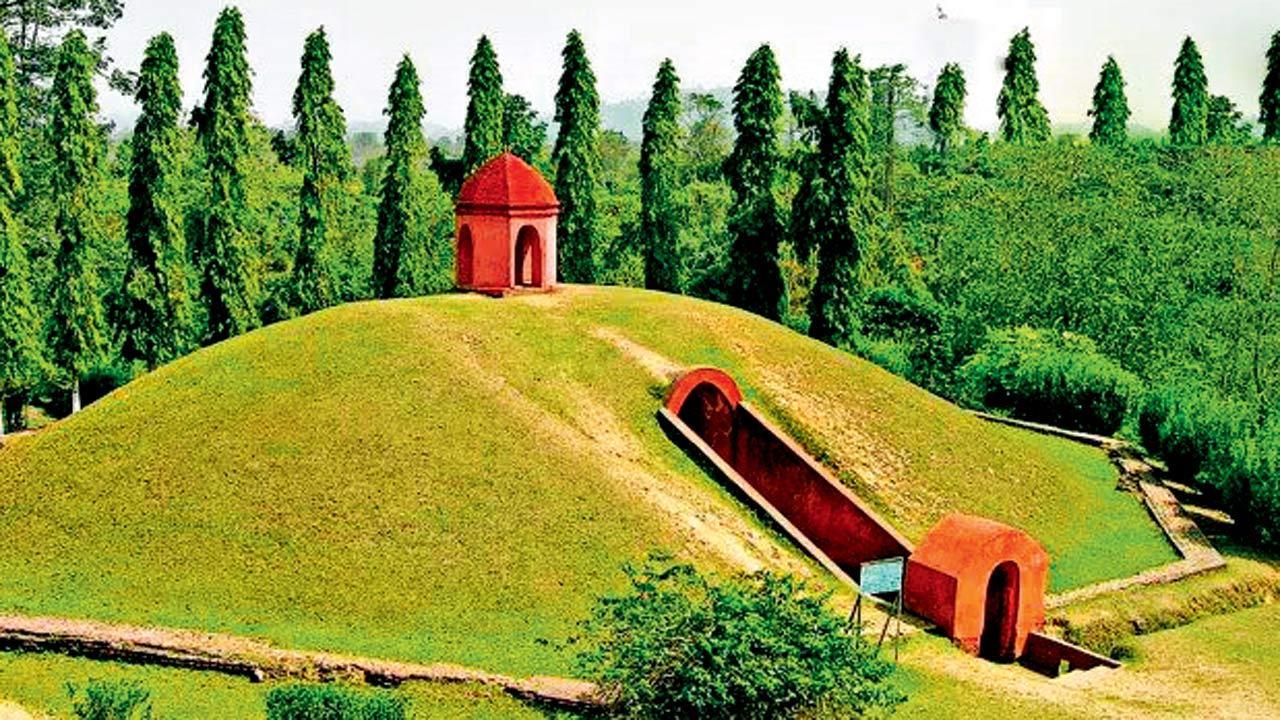Unique burial mounds used by Tai-Ahom dynasty become Northeast’s first cultural property to earn the prestigious tag

The unique burial mounds, represented by pyramid-like structures known as moidams. Pic/X
The mound-burial system of the Ahom dynasty in Assam — ‘Moidams’ — was on Friday included in the UNESCO World Heritage List, making it the first cultural property from the Northeast to get the coveted tag.
ADVERTISEMENT
The decision was taken during the ongoing 46th session of the World Heritage Committee (WHC) being held in India.
‘Moidams’ was submitted as India’s nomination for inclusion in the UNESCO World Heritage List for the year 2023-24.
The unique burial mounds, represented by pyramid-like structures known as “moidams”, were used by the Tai-Ahom dynasty that ruled Assam for around 600 years.
“Moidams” are vaulted chambers (chow-chali), often double-storied, that has an arched passage for entry. Atop the hemispherical mud mounds, layers of bricks and earth are laid. The base of the mound is reinforced by a polygonal toe-wall and an arched gateway on the west, according to the UNESCO website.
“Eventually, the mound would be covered by a layer of vegetation, reminiscent of a group of hillocks, transforming the area into an undulating landscape,” the description of ‘Moidams’ said.
This story has been sourced from a third party syndicated feed, agencies. Mid-day accepts no responsibility or liability for its dependability, trustworthiness, reliability and data of the text. Mid-day management/mid-day.com reserves the sole right to alter, delete or remove (without notice) the content in its absolute discretion for any reason whatsoever
 Subscribe today by clicking the link and stay updated with the latest news!" Click here!
Subscribe today by clicking the link and stay updated with the latest news!" Click here!







